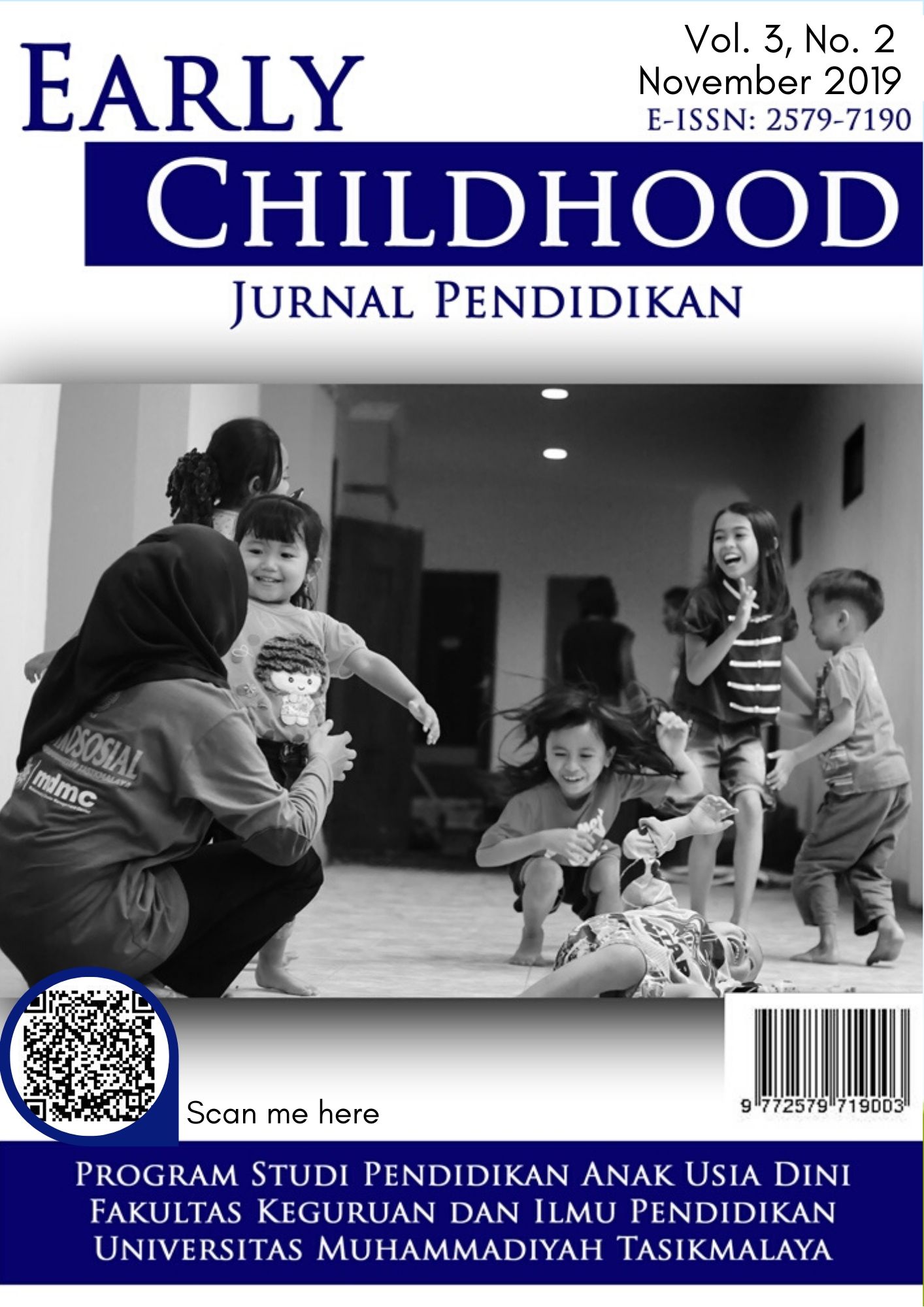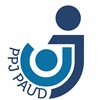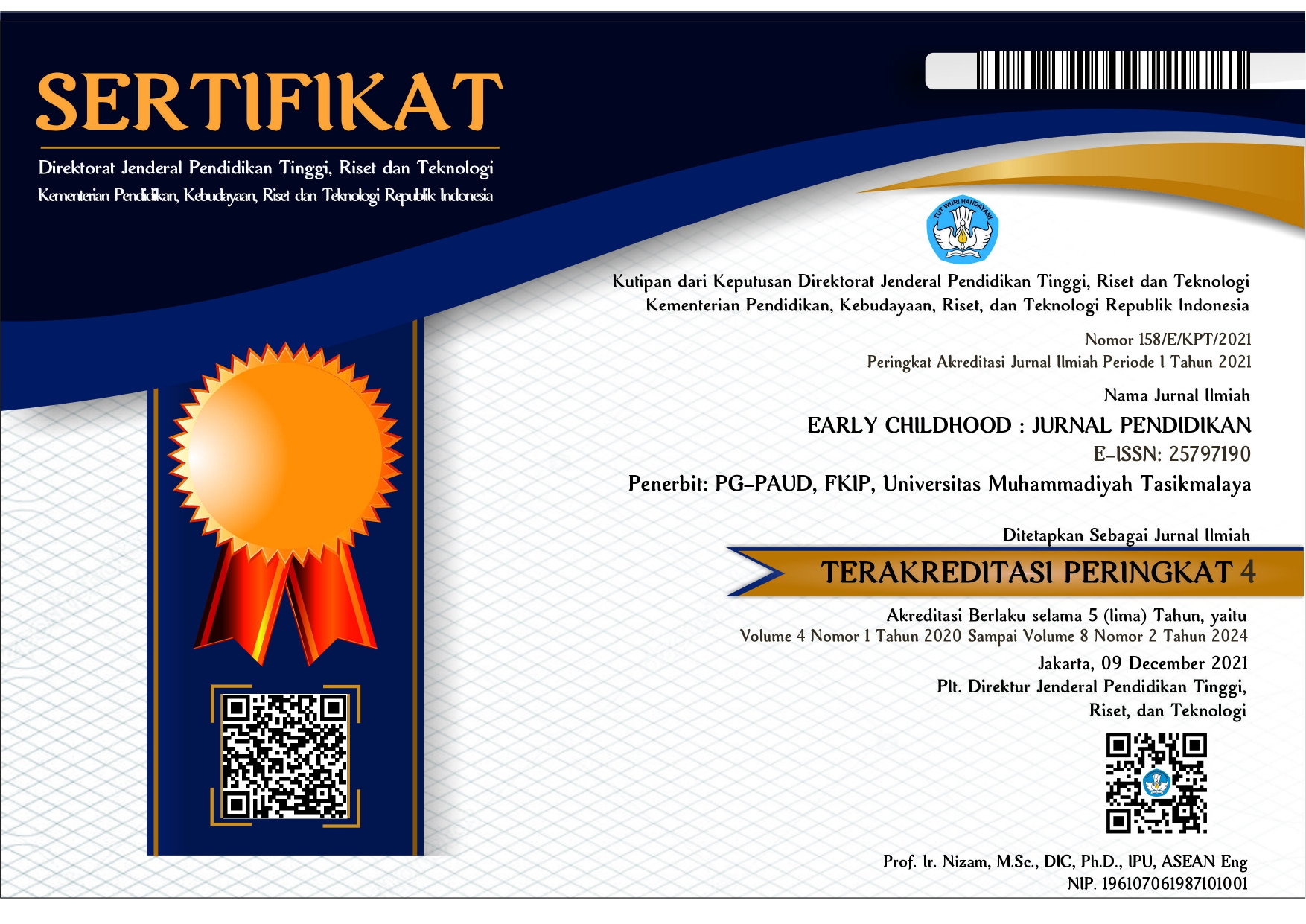PENGGUNAAN EMOJI UNTUK MENINGKATKAN PERILAKU BAIK (WELL-BEING) DAN KEMAMPUAN BAHASA ANAK USIA DINI
DOI:
https://doi.org/10.35568/earlychildhood.v3i2.653Abstrak
This study aims to improve children’s well-being and communication skills using emoji as a learning media. Emoji images used consist of facial emojis, objects and activities that are easily understood and close to children’s daily experiences. The techniques of collecting data were observation sheet and direct observation by researchers. This study used a qualitative descriptive method and the samples were 25 children, collected through purposive sampling, aged between 5-6 years in one PAUD in Konawe Selatan. The results of this study found that emoji media can positively improve children’s well-being and their language abilities. Children always showed huge interest when imitating, affirming, explaining and connecting emojis with objects and their feelings. Children told their daily experiences associated with emojis, hence they become the center of learning where their opinion and ideas are truly heard and understood, which is an important indicator to improve children’s well-being. The open-ended nature of emojis makes children have the opportunity to discuss emoji symbols that are correct according to them and also help researchers interpret how children see their own world. Meanwhile, language ability aspects increased during this activity were vocabulary, the children ability to provide definition, solutions and examples of certain problems, and self-confidence.
Keywords: children well-being; emoji; communication skill; preschools
Unduhan

Unduhan
Diterbitkan
Versi
- 2020-07-14 (2)
- 2019-11-29 (1)
Terbitan
Bagian
Lisensi
Copyright Notice
Early Childhood Journal is an Open Access Journal. The authors who publish the manuscript in this journal agree to the following terms:
This work is licensed under a Creative Commons Attribution-NonCommercial-ShareAlike 4.0 International License.
Privacy Statement

The names and email addresses entered in this journal site will be used exclusively for the stated purposes of this journal and will not be made available for any other purpose or to any other party. Early Childhood allows the author(s) to hold the copyright and to retain publishing rights without restrictions.




